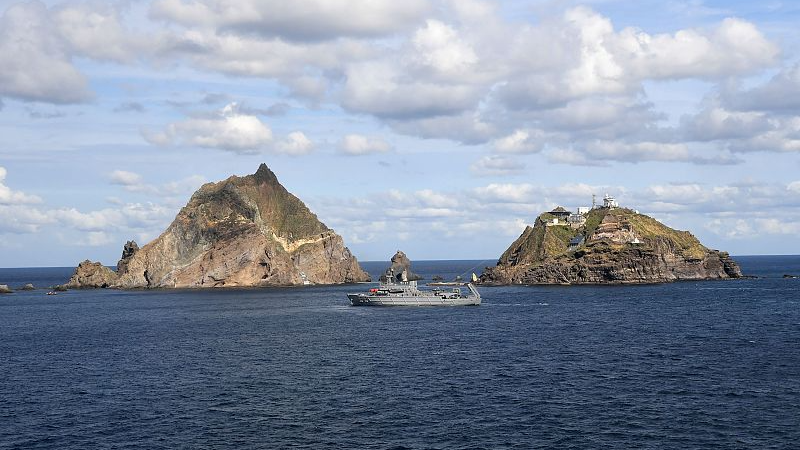
South Korean rescuers search for missing people after a helicopter crashed into the sea near Dokdo islets, which is known as Takeshima in Japan, November 3, 2019. /CFP
South Korean rescuers search for missing people after a helicopter crashed into the sea near Dokdo islets, which is known as Takeshima in Japan, November 3, 2019. /CFP
The Foreign Ministry of South Korea lodged a strong protest against Japan on Tuesday over Tokyo's renewed territorial claim over the Dokdo islets, also known by the Japanese name of Takeshima, lying halfway between the two countries, in its latest annual diplomatic book.
In Japan's 2023 Diplomatic Bluebook, it's stated that South Korea has continued an "illegal occupation" of the area with no legal basis. However, South Korea claimed that it has long maintained effective control of the Dokdo islets with the permanent stationing of security personnel there.
South Korea's foreign ministry spokesperson Lim Soo-suk said Seoul "strongly protests Japan's repeated unjust claims of sovereignty over Dokdo, which is of our sovereign territory historically, geographically and under international law."
He added that Japan's repeating claims of the islets don't contribute to the building of a future-oriented relationship between Seoul and Tokyo.
According to South Korean officials, the diplomatic book also omitted its pledge to honor the "historical perceptions of previous governments" in its description of the administration's handling of the issue of wartime forced labor of South Koreans.
Last month, Japan's Prime Minister Fumio Kishida pledged publicly that his government would honor the "historical perceptions of previous governments" after holding a summit with South Korean President Yoon Suk-yeol in Tokyo.
Ahead of the pledge, the South Korean government had unveiled a plan to compensate South Korean victims of forced labor during World War II through a domestic foundation. The Japanese side is not involved in the compensation plan.